Should you choose imported or locally manufactured automatic doors?
Automatic doors are becoming increasingly common in homes, shops and commercial buildings, yet many customers still wonder whether they should choose imported doors or locally manufactured ones to balance long-term durability and overall investment. This article breaks down each option and helps you determine the most suitable choice.
1. Overview of today’s demand for automatic doors
Automatic doors have become a familiar feature in both residential and commercial spaces thanks to their smooth operation, modern appearance and enhanced access control. As people begin exploring options, they often hesitate between imported and locally manufactured doors due to differences in cost, durability and brand reputation, creating the need for a clear comparison before making a decision.
1.1 Trends in automatic door usage in residential and commercial projects
Automatic doors are widely used in townhouses, showrooms, restaurants, hotels and office buildings because they improve convenience and create a better entry experience. Demand continues to grow as users prioritize aesthetics, stable performance and reduced long-term maintenance costs.
1.2 Why customers struggle to choose between imported and local doors
The differences in pricing, build quality and component origin make the decision more challenging. Some customers prefer international brands for their reliability, while others choose local products to optimize costs and ensure easy access to replacement parts when needed.
1.3 Key factors to consider when evaluating an automatic door system
Customers typically assess motor durability, opening speed, operating noise, safety standards, dust- and water-resistance, component origin and warranty policy. These factors provide an objective basis when comparing imported doors with locally manufactured ones.
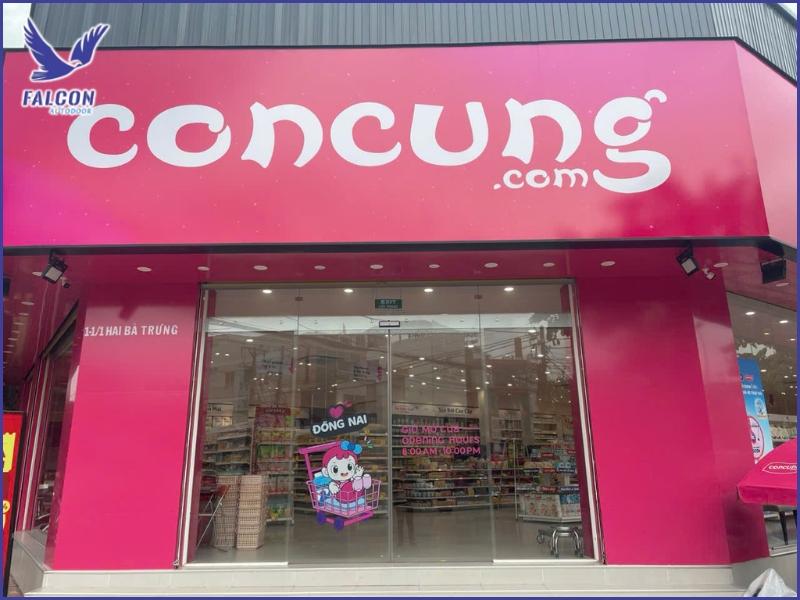
2. Imported automatic doors: Advantages and limitations
Imported automatic doors are favored for their stable quality and advanced engineering, though their pricing and maintenance process may require additional consideration. Understanding both sides will help you determine whether they match your project’s requirements.
2.1 Key advantages of imported automatic doors
Imported doors are built with strong motors, high durability and smooth long-term performance. Their compact and well-finished design follows international standards, offering superior aesthetics and consistent operation in high-traffic environments.
2.2 Limitations of imported automatic doors
Investment costs are usually higher due to taxes and international freight, which can be a concern for large installations. Replacement parts often require overseas sourcing, resulting in longer waiting times that may affect building operations during maintenance.
2.3 Which types of projects are imported doors best suited for?
Imported systems work well for shopping malls, hospitals, hotels, Grade-A offices or any project that requires flawless stability. Locations that demand a high-end image, nonstop operation and long-term durability are ideal for this category.
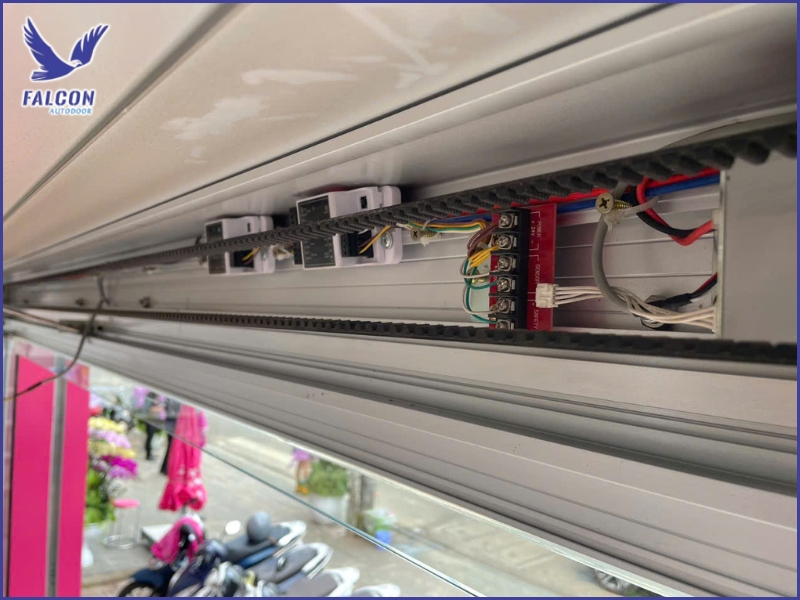
3. Locally manufactured automatic doors: Advantages and limitations
Locally produced automatic doors have improved significantly in quality, design and durability, giving customers a more budget-friendly alternative. By understanding their strengths and limitations, you can determine whether they meet your project’s actual needs.
3.1 Advantages of locally manufactured automatic doors
Local doors offer competitive pricing because they do not incur import taxes or international freight, making them cost-effective for many projects. Replacement parts are readily available, warranty support is quick and domestic technicians can resolve issues promptly, ensuring peace of mind for long-term use.
3.2 Limitations of locally manufactured automatic doors
Some models may lack design variety compared to international brands, and motor quality varies by manufacturer, so choosing a reputable provider is essential. Low-priced models may have shorter lifespans, increasing repair costs if the wrong product is selected at the start.
3.3 Which customer groups are local doors ideal for?
Local doors are suitable for townhouses, retail shops, small offices and projects that need cost-effective yet stable operation. They are also an excellent option for businesses installing doors in large quantities or projects with tight construction schedules.
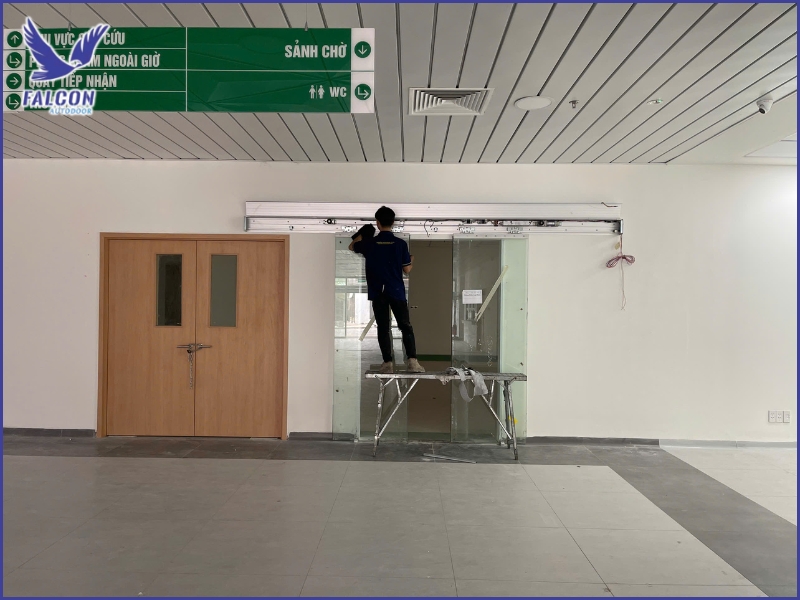
4. Comparison between imported and locally manufactured doors based on key criteria
By comparing the two categories side by side, users can clearly see the differences in durability, aesthetics, technology and cost making it easier to choose the best option for long-term operation.
4.1 Durability and lifespan
Imported doors generally offer longer lifespans thanks to synchronized motors and strict technical standards, maintaining performance even under continuous use. Local doors still deliver good durability when built with high-quality components, but performance varies by manufacturer, making brand selection important.
4.2 Aesthetics and technology
Imported doors often feature modern designs with refined, unified components that create a premium appearance. Local brands are improving in both technology and styling, though the level of refinement may not match high-end international models.
4.3 Pricing and maintenance costs
Imported doors have higher initial costs and maintenance expenses due to overseas component sourcing. Local doors are more affordable, easier to maintain and have cheaper replacement parts making them highly cost-effective for projects with moderate budgets.
4.4 Component availability and warranty support
Imported systems may require longer waiting periods for spare parts, extending downtime in some cases. Local doors provide immediate access to parts and fast technical support, reducing operational interruptions for buildings.
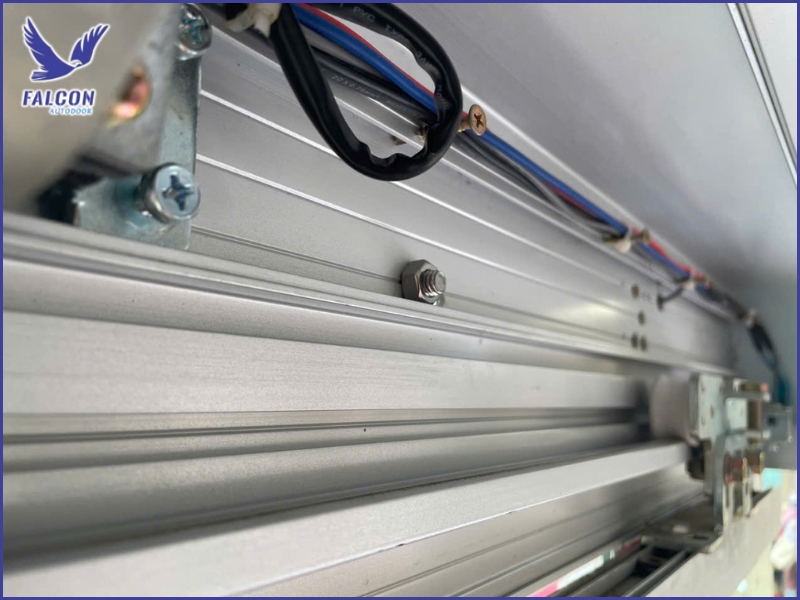
5. Which option is the best choice for your project?
The decision between imported and locally manufactured automatic doors depends on project scale, budget and your priorities for aesthetics or durability. Once you identify your needs clearly, selecting the right option becomes much easier and minimizes long-term risk.
5.1 When should you choose imported automatic doors?
Imported doors are ideal for projects requiring top-tier performance, heavy traffic capacity and a professional appearance such as hotels, showrooms, shopping malls or premium offices. They are also suitable if you prioritize maximum reliability and longevity without heavy concern for initial investment.
5.2 When should you choose locally manufactured automatic doors?
Local doors are perfect for projects that need reasonable pricing such as townhouses, retail stores, and small to medium-sized offices, or installations requiring fast completion. When rapid warranty service, readily available parts and operational cost savings are priorities, locally manufactured options deliver excellent value.
5.3 Practical tips for choosing the right product for your building
You should evaluate usage needs, operating frequency, durability requirements and budget to choose wisely. Regardless of the type, always work with a reputable provider offering transparent specifications, high technical standards and clear warranty terms to ensure long-term stability.
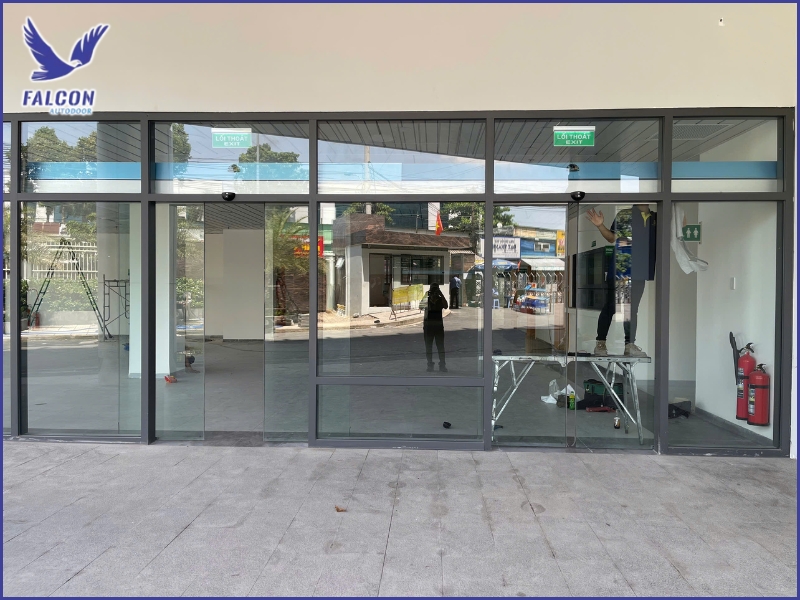
Choosing between imported and locally manufactured automatic doors becomes much easier when you clearly understand your real needs, priorities and investment capacity. Each category has its strengths and is suitable for different project groups, so basing your decision on accurate information will help your building operate reliably and cost-effectively for years to come.
If you need more detailed guidance or want recommendations tailored to your project, contact Thuy Linh Long for on-site inspection, pricing and a customized automatic door solution delivered quickly and professionally.
THUY LINH LONG SERVICES TRADING COMPANY LIMITED
DISTRIBUTOR
Address: 243D Vuon Lai Street, Phu Tho Hoa Ward, Tan Phu District,
Ho Chi Minh City, Vietnam.
Tel: +84 28 22497999
E-mail: cuatudong24h@gmail.com
SUPPLIER
KUM YANG MATERIALS CO.,LTD
Address: 124-60, Myeongdong-ro, Hallim-myeon,
Gimhae-si, Gyeongsangnam-do, 50851, Korea.
Tel: 82-55-345-8380










